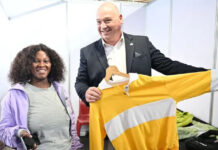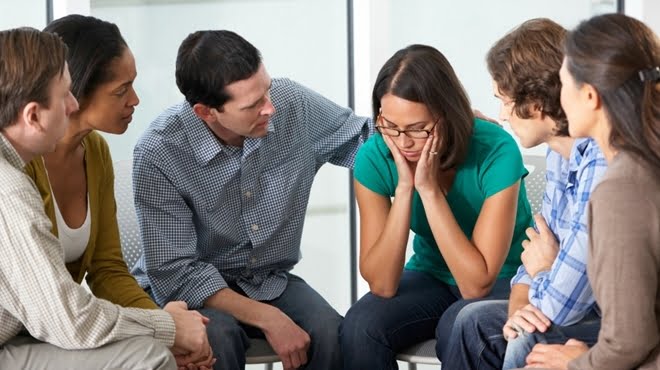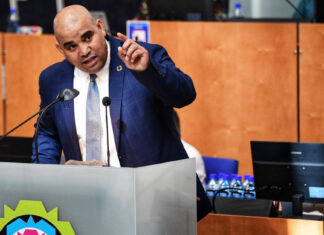When it comes to South African tourism, our beaches, safari parks, Table Mountain and the Garden Route undoubtedly garner the most attention.
There are, however, more reasons tourists come to our country.
South Africa has become increasingly popular among foreign English language students and addiction rehabilitation patients.
South Africa’s tourism industry is growing. The latest Tourism and Migration Survey by Stats SA shows that 2.6 million foreigners passed through our ports of entry in November last year – a 3.9% increase from November 2016.
Most of them (96.3%) came here on holiday, 0.4% visited South Africa for study purposes and the rest were here on business.
While small, South Africa’s English language travel sector is becoming a powerful contributor to the economy.
Last year, the 20 English schools belonging to Education SA (EduSA) language travel association attracted 10 042 students, 15% more than in 2016 and 43% more than in 2015.
“Each of them spends R6 146 for every week of their six-week stay,” said Johannes Kraus, founder of the Kurus English school in Cape Town and EduSA chairperson.
“Collectively, our students spent 61 268 weeks in South Africa in 2017.”
Based on these figures, EduSA’s students spent R377 million in South Africa in 2017, or R37 497 each. Their per capita contributions exceed the expenditures of conventional tourists.
The total contributions of South Africa’s entire language travel sector were much higher, as the above data only applied to EduSA’s 20 members.
South Africa had between 35 and 40 serious language schools.
While South Africa’s language travel sector was thriving, things could have been better had it not been for the visa debacle of 2014.
In that year, the department of home affairs decided it would no longer issue study permits to students of institutions not accredited by the higher education and training department.
As a result, EduSA’s student numbers plummeted from just over 10 000 in 2014 to 7 000 in 2015, said Kraus.
Students stayed shorter periods of time, around five weeks, instead of the usual six.
“Four schools had to close their doors and others had to downscale.”
Fortunately, Kurus was back at the level it was in 2014.
The fact that the home affairs department’s decision was overturned in court played a huge role in the recovery.
“We have until the end of this year to get registered, said Kraus.
“Imagine if we hadn’t lost out. We could have had 15 000 students by now.”
Another less visible group of economic contributors were foreign rehab patients who were after a spot in one of around 30 local rehab clinics.
The Netherlands alone accounted for 3 000 of them. They come here to deal with their addiction to substances such as alcohol and drugs and for behaviours ranging from gambling to sex.
Mario de Wit, CEO of Dutch addiction care organisation GGZ Interventie, said the Netherlands sent 250 patients per month to South Africa.
“Each of them contributes €4 000 (R59 500) to the local economy during their 32-day stay,” said De Wit, an addiction care expert.
The organisation had arrangements with five Cape Town-based clinics that offered 32-day rehab and recovery programmes.
The Dutch contingent of rehab patients alone was worth R180 million per year.
“This is over and above creating 70 direct jobs in the five clinics we have relationships with,” said De Wit.
The economic impact of South Africa’s entire rehab industry was much higher and growing, he added. This was due to the affordability and the quality of care.
“Addiction care is 65% cheaper in South Africa than in Europe. This allows you to get treatment twice as long for the same price.”
Most European medical aids covered addiction rehab. The reason was simple: a recovered Dutch addict, for instance, would save the Dutch economy around €1 million for the rest of his or her life after recovery.
“These savings refer to fewer medical costs, costs associated with social problems, crime prevention, police costs, increased economic productivity and the impact of addiction on the patient’s family,” he said.
The South African equivalent to this figure was R4 million, he said.
While Europeans accounted for most foreign rehab patients, new regions were making an entry. These included the Middle East.
“Addiction doesn’t officially exist in the Middle East because drugs and alcohol are forbidden. That is why they come to South Africa anonymously,” said De Wit.
Those coming here for treatment were mainly the elite in these countries.
“They tend to go to a five-star rehab resort that combines treatment for addiction, private bungalows, spas, golf and equine training woven around their therapy. The rich don’t go to our clinics, where people share rooms, sleep in bunk beds and are there to deal with their addiction and change their mentality.”















